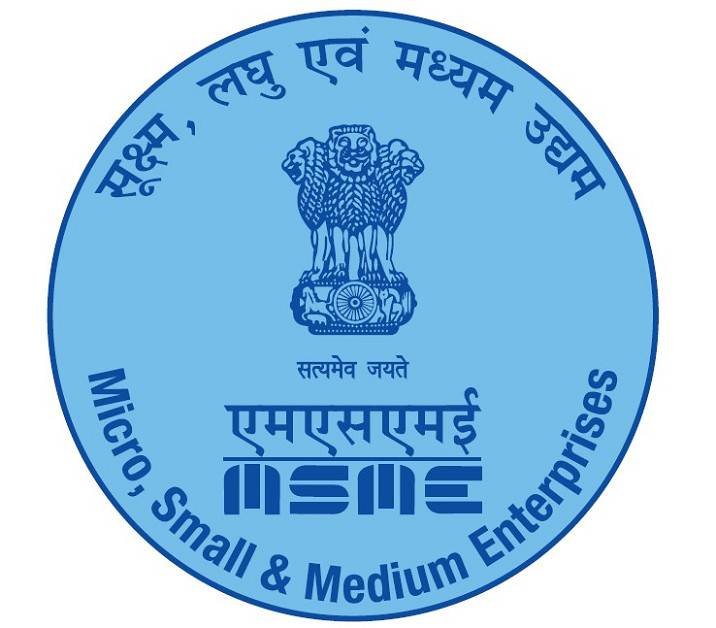Learn about the different types of MSME registrations in India, including Udyam Registration, Udyog Aadhaar Memorandum, and more. Get an overview of the registration process, eligibility criteria, and benefits.
Small and Medium Enterprises (SMEs) are the backbone of India’s economy, contributing significantly to its GDP and employment. The government of India recognizes the importance of SMEs and has implemented several measures to support and encourage their growth. One such measure is the Micro, Small, and Medium Enterprises (MSMEs) Registration, which provides numerous benefits to registered enterprises. In this article, we will explore the various types of MSME registrations in India and their benefits.
Micro, Small, and Medium Enterprises (MSMEs) are the backbone of the Indian economy, contributing significantly to employment generation and economic growth. The Government of India has implemented several policies and initiatives to promote the growth of MSMEs, including providing financial assistance, tax benefits, and regulatory support. One of the most critical aspects of establishing an MSME is to obtain the required registrations and licenses.
In this article, we will provide an overview of the different types of MSME registrations in India, including Udyam Registration, Udyog Aadhaar Memorandum, and more. We will also discuss the eligibility criteria, benefits, and registration process.
What Are MSME Registrations
MSME Registrations in India refer to the process of registering a micro, small, or medium-sized enterprise under the Micro, Small, and Medium Enterprises Development (MSMED) Act, 2006. This act was enacted to promote and develop the MSME sector in India and provide support to small and medium enterprises to enhance their competitiveness and sustainability. The registration process enables MSMEs to avail themselves of various benefits, including financial assistance, subsidies, and other support schemes offered by the government.
MSME Registration is a government initiative aimed at promoting and supporting the growth of micro, small, and medium-sized enterprises in India. The registration process provides various benefits to registered enterprises, including financial assistance, regulatory support, and marketing assistance. The government of India has implemented several types of MSME registrations, each with its own eligibility criteria and benefits.

Types of MSME Registrations
There are three types of MSME registrations in India, which are as follows:
Udyog Aadhaar Registration
Udyog Aadhaar Registration is a voluntary registration process that is open to all micro, small, and medium enterprises in India. This registration is done online and requires no documentation or fees. Udyog Aadhaar Registration provides several benefits to registered enterprises, including access to government schemes, subsidies, and loans.
Udyam Registration is a new registration process introduced by the Government of India in July 2020, replacing the old Udyog Aadhaar Memorandum (UAM) registration. The registration process is entirely online and free of cost. Udyam Registration is applicable to all MSMEs, including sole proprietorships, partnerships, and private limited companies.
Eligibility criteria:
The business must be registered as a proprietorship, partnership, or private limited company.
The business must have a valid PAN and GSTIN.
The investment in plant and machinery or equipment must not exceed Rs. 1 crore for micro-enterprises, Rs. 10 crore for small enterprises, and Rs. 50 crores for medium enterprises.
Benefits:
- Access to various government schemes and incentives.
- Collateral-free loans from banks and financial institutions.
- Easy access to credit.
- Exemption from certain taxes and duties.
- Protection under the Micro, Small, and Medium Enterprises Development Act, 2006.
Registration Process:
The registration process for Udyam Registration is entirely online and free of cost. The applicant needs to visit the Udyam Registration portal and provide the necessary details, including PAN, GSTIN, Aadhaar, and bank account details.
Udyog Aadhaar Memorandum (UAM)
Udyog Aadhaar Memorandum (UAM) was the earlier registration process for MSMEs in India, which has been replaced by Udyam Registration. The registration process was entirely online and free of cost. UAM was applicable to all MSMEs, including sole proprietorships, partnerships, and private limited companies.
Eligibility criteria:
The business must be registered as a proprietorship, partnership, or private limited company.
The business must have a valid PAN and GSTIN.
The investment in plant and machinery or equipment must not exceed Rs. 10 lacks for micro-enterprises and Rs. 5 crores for small enterprises.
Benefits:
- Access to various government schemes and incentives.
- Collateral-free loans from banks and financial institutions.
- Easy access to credit.
- Exemption from certain taxes and duties.
- Protection under the Micro, Small, and Medium Enterprises Development Act, 2006.
Registration Process:
The registration process for Udyog Aadhaar Memorandum (UAM) was entirely online and free of cost. The applicant needed to visit the UAM portal and provide the necessary details, including PAN, GSTIN, Aadhaar, and bank account details.
MSME Registration under the MSMED Act
MSME Registration under the MSMED Act is a mandatory registration process for all micro, small, and medium-sized enterprises. This registration requires certain documents, such as the enterprise’s PAN card and bank account details. MSME Registration provides various benefits to registered enterprises, including protection against delayed payments and credit guarantees.
MSME Registration is a voluntary registration process for MSMEs in India. The registration process is entirely online and free of cost. MSME Registration is applicable to all MSMEs, including sole proprietorships, partnerships, and private limited companies.
Eligibility criteria:
The business must be registered as a proprietorship, partnership, or private limited company.
The business must have a valid PAN and GSTIN.
The investment in plant and machinery or equipment must not exceed Rs. 10 crores for manufacturing enterprises and Rs. 5 crores for service enterprises.
Benefits:
- Access to various government schemes and incentives.
- Collateral-free loans from banks and financial institutions.
- Easy access to credit.
- Exemption from certain taxes and duties.
- Protection under the Micro, Small, and Medium Enterprises Development Act, 2006.
Registration Process:
The registration process for MSME Registration is entirely online and free of cost. The applicant needs to visit the MSME Registration portal and provide the necessary details, including PAN, GSTIN, Aadhaar, and bank account details.
SSI Registration
Small Scale Industry (SSI) Registration is a registration process for small-scale industries in India. The registration process is entirely offline and requires the applicant to submit the application form to the District Industries Centre. SSI Registration is applicable to all small-scale industries, including sole proprietorships, partnerships, and private limited companies.
Eligibility criteria:
The business must be registered as a proprietorship, partnership, or private limited company.
The investment in plant and machinery or equipment must not exceed Rs. 1 crore for manufacturing enterprises and Rs. 50 lakhs for service enterprises.
Benefits:
- Access to various government schemes and incentives.
- Collateral-free loans from banks and financial institutions.
- Easy access to credit.
- Exemption from certain taxes and duties.
- Protection under the Micro, Small, and Medium Enterprises Development Act, 2006.
Registration Process:
The registration process for SSI Registration is entirely offline. The applicant needs to submit the application form, along with the necessary documents, to the District Industries Centre.
Entrepreneur Memorandum (EM) Part I and II
Entrepreneur Memorandum (EM) Part I and II is a registration process for new micro, small, and medium-sized enterprises. EM Part I is a provisional registration that is valid for two years, while EM Part II is a permanent registration that is valid for the lifetime of the enterprise. EM registration provides various benefits, including eligibility for government schemes and incentives.
Benefits of MSME Registration
MSME Registration provides several benefits to registered enterprises, including financial, regulatory, and marketing benefits. Some of the key benefits are as follows:
Financial Benefits
- Access to government schemes, subsidies, and loans
- Credit guarantees and protection against delayed payments
- Priority sector lending from banks and financial institutions
Regulatory Benefits
- Exemptions from certain taxes and fees
- Preference in government procurement
- Concessions in electricity bills and property tax
Marketing Benefits
- Access to market development assistance schemes
- Support for technology and quality upgradation
- Participation in trade fairs and exhibitions
Conclusion
MSMEs are the backbone of the Indian economy, contributing significantly to employment generation and economic growth. The government of India has implemented several policies and initiatives to promote the growth of MSMEs, including providing financial assistance, tax benefits, and regulatory support. In this article, we have provided an overview of the different types of MSME registrations in India, including Udyam Registration, Udyog Aadhaar Memorandum, MSME Registration, and SSI Registration. We have also discussed the eligibility criteria, benefits, and the registration process for each type of registration. By obtaining the necessary registrations and licenses, MSMEs can avail of various benefits and incentives and contribute to the growth of the Indian economy.
5. FAQs
Q1. Is MSME Registration mandatory for all enterprises in India?
A1. MSME Registration under the MSMED Act is mandatory for all micro, small, and medium-sized enterprises. However, Udyog Aadhaar Registration and EM Part I and II are voluntary registrations.
Q2. What are the documents required for MSME Registration?
A2. The documents required for MSME Registration under the MSMED Act include the enterprise’s PAN card and bank account details. However, Udyog Aadhaar Registration and EM Part I and II require no documentation.
Q3. Can an enterprise have more than one MSME Registration?
A3. No, an enterprise can have only one MSME Registration under the MSMED Act. However, it can also register for Udyog Aadhaar or EM Part I and II, in addition to the MSMED registration.

